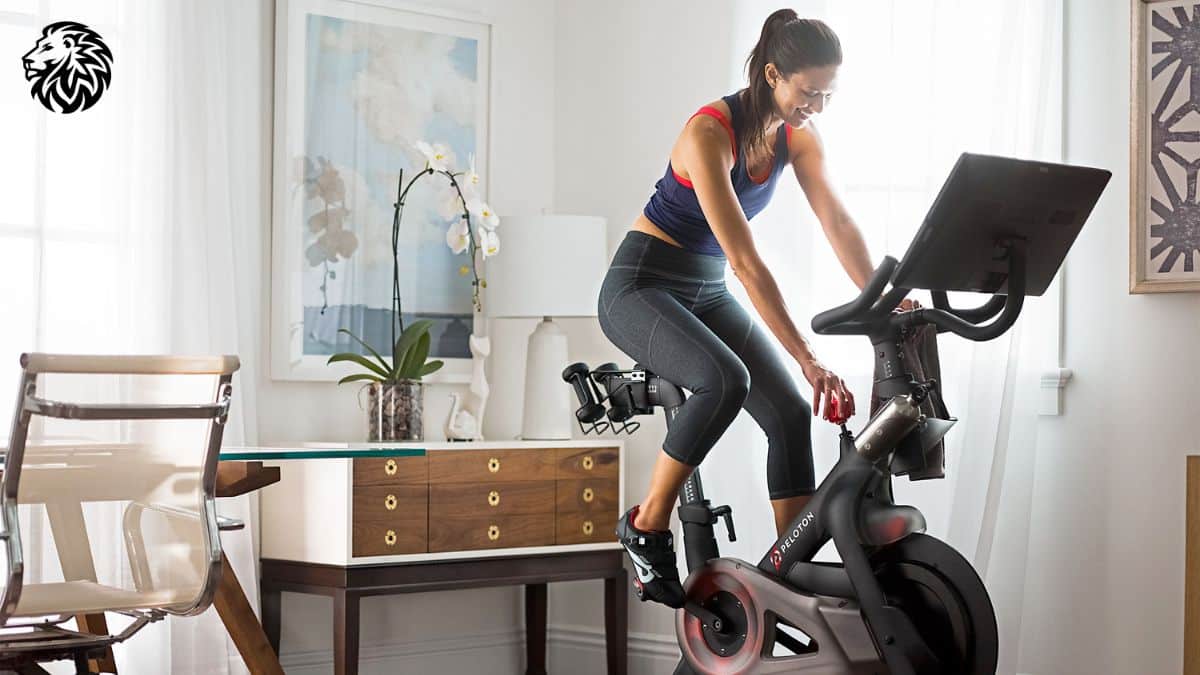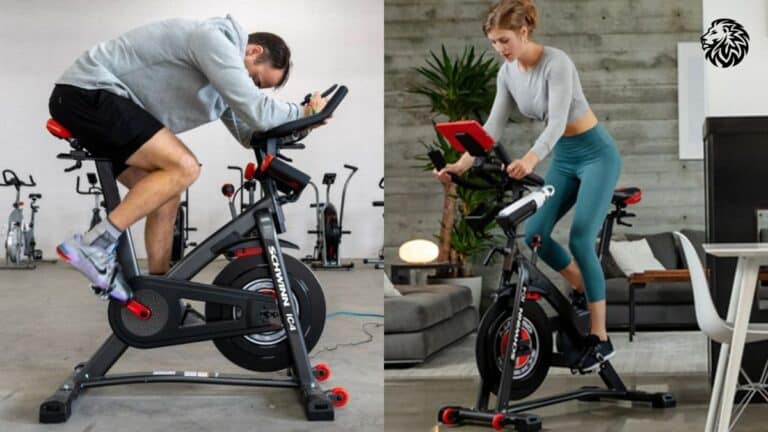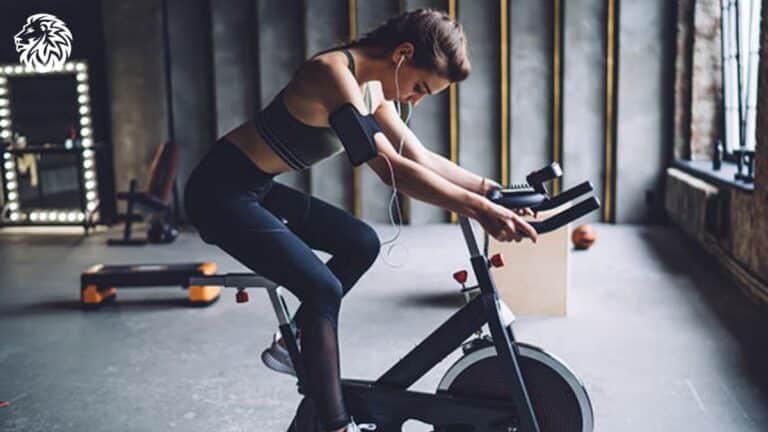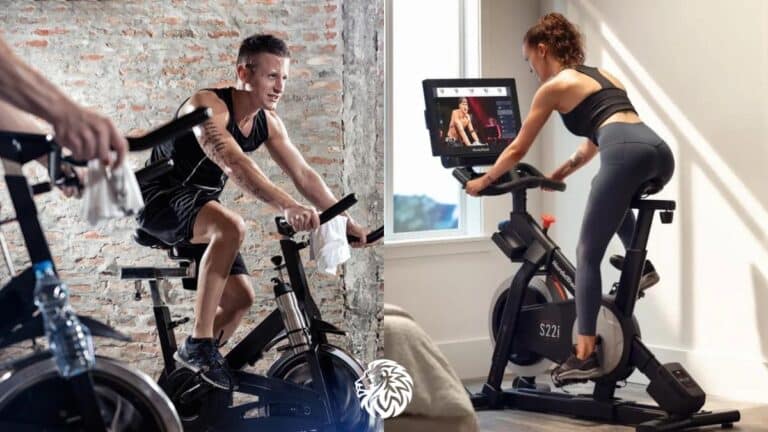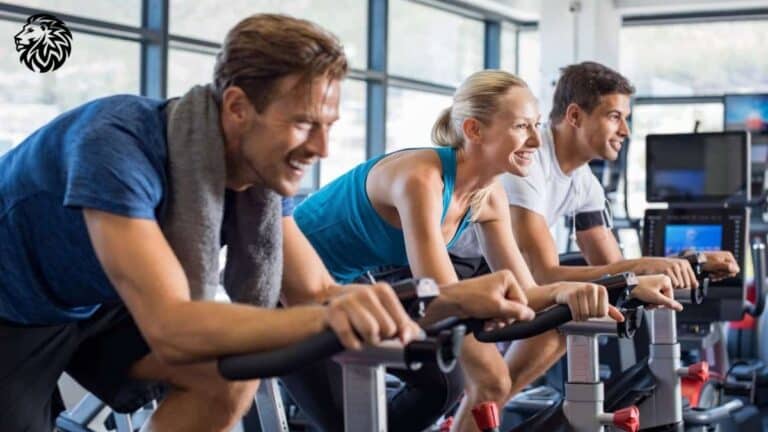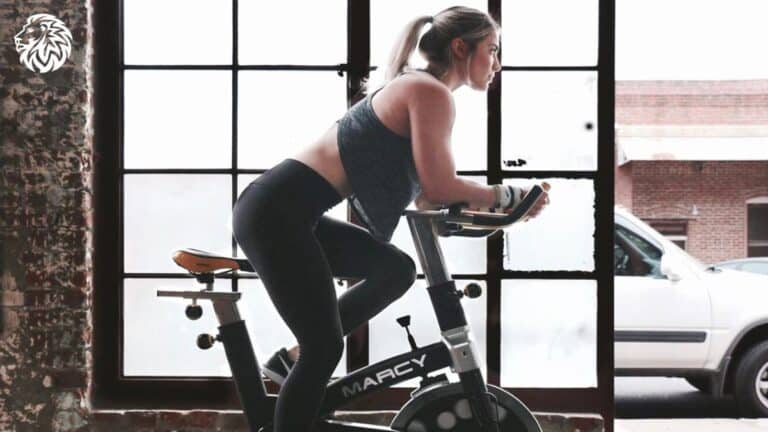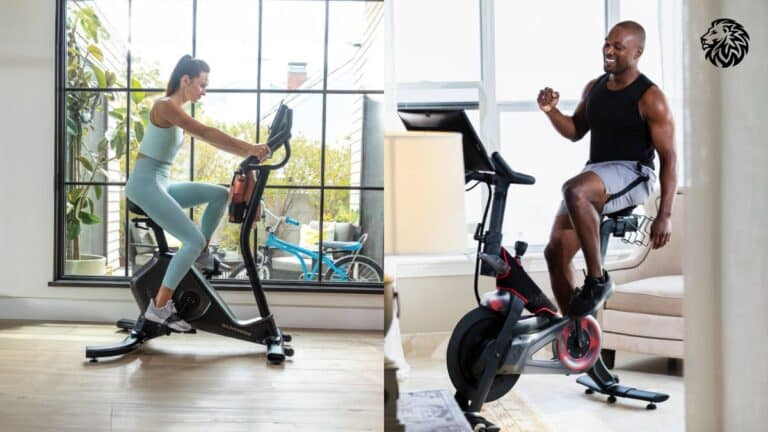Stationary Bike Benefits for Knee Health
Stationary bikes ain’t just for those fancy gym ads—they’re a real gem for folks tackling knee issues. Here’s the lowdown on how cycling your heart out on a stationary bike can ease knee pain and get those joints moving like they should.
Knee Pain Relief Through Cycling
If you’re looking for a way to say “see ya” to knee pain, hop on a bike! Especially for folks battling with knee osteoarthritis, that pedaling motion on a stationary bike is smooth as butter. The magic lies in its low-impact nature—it won’t give your knees the pounding that jogging would, making it the go-to workout for knee troubles.
Regular cycling on these trusty bikes has shown to ease pain and even spruce up performance for those with knee osteoarthritis (check it out on PubMed). Plus it keeps your cartilage from wearing out like a pair of old shoes and curbs any inflammation, giving your knee joints a factory reset (PMC).
| Benefit | Description |
|---|---|
| Pain Reduction | Keep that knee pain at bay with consistent cycling—‘cause osteoarthritis pain’s got nothin’ on you (BarBend). |
| Better Joint Function | Keep your cartilage in tip-top shape and those joints working (PMC). |
| Muscle Building | It’s all about beefing up those quads, hamstrings, and calves to keep knees sturdy (Cardio Online). |
How Cycling Provides Relief
- Low-Impact Goodness:
- Unlike a run, cycling spare your knees from the pothole-like jolt of landing hard. This easy-going ride helps dodge any extra knee problems (Velotric Bike).
- Get Those Muscles Involved:
- When you’re pedaling, you’re not just sitting there—you’re working your quads, hamstrings, and calves. They tag-team to distribute the load, cutting down pain and boosting knee stability.
- Control it Your Way:
- With a stationary bike, you’re the boss. Adjust the resistance and intensity to suit your comfort, ensuring a gentle ride that your knees will thank you for (stationary bike resistance levels).
Your bike setup can make or break your workout. Adjust the seat height and handlebars right so you aren’t hunched like a question mark, preventing unnecessary strain. Need help with the setup? Hit up our guide on setting up your stationary bike.
Looking to crank up the intensity? We’ve got your back with our guide on stationary bike HIIT workouts. Just a heads up, check with your doc before diving into a new workout routine, especially if your knees are throwing tantrums.
Selecting the Right Stationary Bike
Picking the perfect stationary bike for dodgy knees isn’t just a good move; it’s a game-changer. Let’s break down why seat adjustments matter and what sets recumbent and upright bikes apart.
Importance of Adjustable Seating
Adjustable seats on these bikes aren’t just for show—they’re vital for comfort and success. A wrong seat height makes for ready-made knee pain or backaches, throwing a wrench in your workout plans.
As per BarBend, the key to avoiding trouble is finding a bike where the seat moves up, down, forward, and back. Get it just right to keep knee strain at bay.
Why Adjustable Seats Rock:
- Your Fit: Make the bike feel like it was custom-built for you.
- Injury Blocker: Keep those knees and back out of harm’s way.
- Top Comfort: Pedal longer without grumbling knees.
If sitting still bugs you, check out our tips on stationary bike seat cushions for a little extra comfort.
Recumbent vs. Upright Bikes
Choosing the right bike means knowing how recumbent and upright bikes differ, especially in knee TLC.
Recumbent Bikes
Recumbent bikes are the go-to for those with mobility issues or injuries. With a laid-back seat position, they’re easy on the back and knees, making them a winner for knee problems.
| Feature | Recumbent Bike |
|---|---|
| Seating Position | Laid-back, with a back to lean on |
| Pressure Distribution | Gentler on hips and back |
| Recommended For | Maximum knee support, back comfort |
Benefits:
- Spine-Friendly: Keeps your spine in a happy configuration.
- Back Comfort: Helps support underappreciated lower backs.
- Ultimate Comfort: Great for anyone who needs added ease or support.
Slide on over to our piece on stationary bike for knee rehab for more on how they can help with knee healing.
Upright Bikes
Upright bikes give you that outdoorsy biking feel without leaving your house. They’re gentle on the joints compared to pounding the pavement (Cardio Online).
| Feature | Upright Bike |
|---|---|
| Seating Position | Up as if you’re road cycling |
| Pressure Distribution | Legs and core handle the load |
| Recommended For | Realistic cycling vibe, flexible workouts |
Benefits:
- Core Power: Keeps your core working as you balance.
- Workouts Galore: Perfect for a mix of intense and chill sessions.
- Apartment-Friendly: Doesn’t hog your living space.
For workout ideas and how to crank up the intensity, check out our guide on stationary bike HIIT workouts.
Picking the right stationary bike with good adjustable seating is like a knee-health insurance policy, boosting your exercise efficiency. Think about what clicks for you and aim for comfort all the way. For more tips and ways to make the most of your exercise bike, browse our stationary bike exercise routines.
Stationary Bikes for Knee Osteoarthritis
Exercise Therapy Recommendations
When it comes to tackling knee osteoarthritis, exercising right is kind of like choosing the perfect pair of shoes – it’s got to fit just right. This means taking into account your age, mobility, how active you are, and any other health issues or personal tweaks you might need. For folks dealing with knee troubles, slipping in some low-impact exercises like cycling is often the way to go, as they’re pretty good at dialing down the pain and ramping up your mojo.
Getting your sweat on can have loads of positives. Check these out:
- Stopping your cartilage from calling it quits
- Keeping inflammation at bay
- Helping bones stay solid
- Easing up on the pain, stiffness, whiny joints, and slouchy muscles (PMC)
Cycling is the superstar here because it’s gentle on your joints and you can crank it up or down depending on how your knees are feeling.
CDC Guidelines for Knee OA Patients
The health gurus at CDC say folks with knee osteoarthritis should aim for at least 30 minutes of moderate activity most days (NCBI). You don’t have to knock it out in one go; mix it up with shorter sessions if the knees are grumbling. Stationary biking is a champ here, helping hit those marks without making knee pain worse.
The CDC waves thumbs up to stuff like walking, cycling, swimming, and splashing around in the pool. These choices are gold because they don’t demand much from your joints but do loads for your heart and muscle power.
Check out how some moves stack up knee-wise:
| Activity | Knee-Friendly? | Nervous Knee Approved? |
|---|---|---|
| Walking | Chill to Medium | Yep |
| Stationary Biking | Super Chill | Absolutely |
| Swimming | Chill | Yep |
| Pool Moves | Chill | Yep |
These suggestions point out why low-impact exercises are a winner, with stationary biking being a top pick due to its easy-peasy nature and availability.
To make sure your ride’s comfy and sweat-ready, hop over to our tips for setting up your stationary bike. Also, see how stationary bike resistance levels can spice up your workout while giving your knees a break.
Adding a bike session to your schedule can work wonders for those grappling with knee woes, upping your comfort and freedom of movement. For on-point workouts, check our range of stationary bike exercise routines.
Stationary Bikes for Knee Rehabilitation
Before and After Surgery Perks
Using a stationary bike can be super helpful both before and after you go under the knife for knee surgery. If you get moving on that bike at least a week before your surgery – like they hint at over on X10 Therapy – you’ll hang on to the strength you’ve got and bounce back faster afterwards. That’s a game changer if you’re getting your knee swapped out or patched up.
Before you hit surgery, pedaling helps you keep your joints and legs in shape. After the surgery, a stationary bike gives you a low-stress way to exercise without overdoing it on those tender knees. You get to work your quads, hamstrings, and calves, which are big-time players in getting your leg muscles back in action and making that knee joint solid as a rock.
Building Up Knee Muscles
Getting those knee-supporting muscles beefed up is what it’s all about for a smooth recovery. A regular spin on the bike can bulk up those support muscles, which are gold for easing knee pain and making sure your joints are doing their thing the way they should.
While you’re pedal pushing, your quads, hamstrings, and calves are putting in overtime, giving you stronger legs and joints that hold tight:
| Muscle Group | Job While You Pedal |
|---|---|
| Quadriceps | Kicks the leg out, keeps the knee steady |
| Hamstrings | Bends the knee, helps the pedal spin smooth |
| Calves | Pushes the pedal down, keeps the ankle steady |
Adding high-intensity interval training (HIIT) on the bike can amp up fat burn and give your heart a good workout. HIIT is all about going hard then easing off, swapping between cranking up the resistance and dialing it down for quick bursts.
A balanced bike workout not only keeps your knees happy but also helps you keep the pounds in check. Because carrying around extra weight can make knee problems worse, keeping fit is a must. A little sweat session on the bike can torch calories, help manage your weight, and take some load off your knees (Velotric Bike).
For more detailed tips and workouts, check out our guides on stationary bike workouts for beginners and getting those knee muscles stronger with a stationary bike.
Effective Workouts on a Stationary Bike
Let’s talk bikes. They ain’t just for Lance Armstrong wannabes. Stationary bikes are like your reliable friend who always delivers, offering flexible workouts to match your fitness groove. Today, we’ll get into two nifty routines: High-Intensity Interval Training (HIIT) and exercises that focus on beefing up those leg muscles to give you Hulk-like stability.
High-Intensity Interval Training (HIIT)
HIIT, or as I like to call it, “the spicy ride,” takes you on a wild journey of sweat and muscle gains. It’s all about switching speeds and resistance levels faster than a caffeinated squirrel, which means you burn fat like butter on a hot skillet and get your heart racing. Research even hints it’s a better calorie killer than steady-paced cycling—seriously (X10 Therapy).
Here’s a simple HIIT session to give you a taste:
| It’s Time to Move | for How Long? | Pump Up the Jam to… |
|---|---|---|
| Break a Little Sweat – Warm-Up | 5 minutes | Keep it chill |
| Blast Off – High-Intensity | 1 minute | Crank it up! |
| Catch Your Breath – Low-Intensity | 2 minutes | Take it easy |
| Blast Off Part 2 – High-Intensity | 1 minute | Power through! |
| Calm Before the Storm – Low-Intensity | 2 minutes | Relax a bit |
| Slow it Down – Cool-Down | 5 minutes | Real smooth-like |
For more sweaty glory, check out some extra stationary bike HIIT workouts.
Building Leg Strength and Stability
So, you want legs that can win a staring contest? Pedaling ain’t just giving your calves a day at the spa; it’s building strength and stability, especially for folks whose knees have seen better days. When you cycle, your quads, hammies, and calf muscles get all tingly and engaged, turning weak joints into pillars of strength.
Here’s how your new leg day might roll:
| Let’s Get Rolling | Duration | Repetitions |
|---|---|---|
| Easy Warm-Up | 5 minutes | Start soft |
| Steady Wins the Race | 10 minutes | Moderate power |
| Push Through | 5 minutes | Turn up the heat |
| Cool It Down | 5 minutes | Chill out |
| Finish with Easy-Cycling | 5 minutes | Wind it down |
Do this often enough, and your legs will thank you with a super grip on life. More tips await you on our stationary bike exercise routines.
Powering up your leg muscles isn’t just about looking good. It’s about feeling even better—less pressure on your joints, less crying on the stairs. Explore the full scope of stationary bike benefits and if you’re just dipping your toes in, our beginner-friendly workouts got your back.
Getting the Most Out of Your Stationary Bike
To really make that stationary bike work for you, you gotta have it set up right and know how to mess with those resistance levels. That trusty bike can do wonders for keeping the pounds off.
Busting Down Setup and Resistance Levels
First thing’s first, your bike’s gotta be comfy and effective so you don’t end up bouncing around like you’re riding a bull at a rodeo. Here’s how you tweak it:
- Set Your Seat Height: Stand next to the bike. Is the seat at hip level? Bingo. When you’re riding, you want a tiny bend in that knee when the pedal’s at its lowest.
- Check Seat Distance: Slide the seat back and forth. Your knee should be right above your foot’s ball when those pedals are flat.
- Get the Handlebar Right: Set those bars where they’re cozy, either level with or just above the seat to save your back and shoulders from demanding a day off.
Resistance levels are key to not wearing yourself out:
- Easy Peasy (Low): This is like stretching before the big game—good for warm-ups and cool-downs.
- Go Steady (Moderate): Ride here for longer at a steady pace. It’s great for building up knee stability and getting muscles back in shape.
- Push It (High): Turn it up for strength sessions and bring the sweat with exercises that build equal parts confidence and muscle.
Here’s a nifty little cheat-sheet for picking resistance levels:
| Type of Ride | Resistance | Time You’ll Spend |
|---|---|---|
| Warm and Fuzzy | Low | 5-10 mins |
| Keep It Movin’ | Moderate | 20-60 mins |
| Powerhouse Interval Party | High | Intervals: 1-3 mins each |
Need more deets? Hit our full guide on ride resistance.
Slim Down and Tone Up
Hopping on the stationary bike is like cracking the code for shedding weight. It’s a trifecta: you torch calories, boost that heart health, and flex those muscles. Here’s the lowdown on how cycling helps with trimming down:
- Burn Baby Burn: Pedaling can zap between 400 to 600 calories an hour. That’s like burning off a burger each time you hop on.
- Rev Up Your Engine: Mix in some intense bursts (HIIT-style!) on the bike to keep your metabolism kicking even after you’ve stopped rolling.
- Muscle Magic: Working those legs can increase your ‘burn-at-rest’ power, supporting long-term waistline wins.
Feel inspired? Check out our bike workout plan and see real weight loss stories from riders like you.
Know the setup, pick your resistance, and crunch those numbers with the bike’s help, and you’re good to go. If you’re still curious about getting started, take a peek at our articles for newbie workouts or knee recovery rides.
